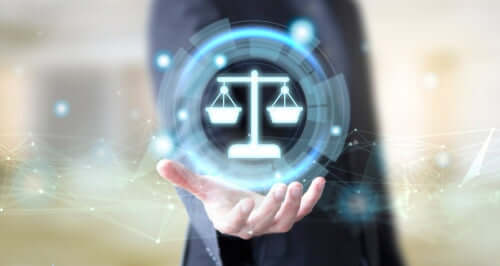
2023 Legal Tech Predictions: AI, Cloud, Blockchain, VR
Since the beginning of the year, the world has undergone significant changes, and inconsistency is becoming increasingly common. Political unrest, pandemic-related interruptions, and rising costs have all unexpectedly pulled and pushed the legal industry in different directions.
While the legal industry has earned a reputation for caution when it comes to adopting new technology, forward-looking organisations cannot afford to move slowly. The proliferation of digital media has enabled faster and more effective communication, with profound implications for the legal industry. To thrive in this rapidly changing landscape, legal professionals must keep their sights on the horizon, track emerging trends, anticipate their impact, and prepare for the new world that is constantly evolving.
In recent years, legal technology (legal tech) has brought about rapid changes in the legal industry, allowing legal professionals to carry out their responsibilities more efficiently, cost-effectively, and accurately. The development of legal tech has made it possible to automate mundane legal tasks, simplify legal research, and improve communication among legal professionals. This article will delve into some of the forecasts for legal tech in 2023.
Currently, AI is already being implemented in various legal applications such as document review, contract analysis, and due diligence. By 2023, AI's usage will escalate even more in legal services. Legal professionals will be able to quickly scrutinise vast amounts of data, detect patterns, and provide clients with informed insights. Lawyers will use ML algorithms to predict case outcomes and assess the probability of winning litigations. Predictive analytics will be employed to analyse extensive data, enabling lawyers to make more educated decisions.
Deloitte’s Tech Trends 2023 report highlights the significance of trust in the success of AI tools in the corporate realm in the future.
The legal industry will witness the growing significance of cloud-based technologies. Law firms will persistently embrace such technologies to expedite their functions, heighten productivity, and facilitate cooperation amongst legal experts. Moreover, cloud-based solutions offer reliable storage and backup choices to preserve delicate legal information.
The legal industry stands to be transformed by the potential of blockchain technology, which offers a reliable and open platform for legal experts to securely store, exchange, and verify legal papers. It is anticipated that by 2023, an increasing number of law firms will investigate the advantages of blockchain technology in enhancing the safety and productivity of their legal procedures.
Legal training and presentations are expected to utilise virtual and augmented reality technologies more and more. These technologies can offer a fully immersive experience, which allows legal experts to engage, learn, practice, and present their work interactively and effectively.
Various industries are already utilising chatbots to offer customer support and assistance. By 2023, the legal industry will significantly increase the use of chatbots to provide clients with legal advice and support. Chatbots can supply prompt solutions to standard legal queries and direct clients through legal procedures.
The application of data to offer insights and forecasts on legal results is known as legal analytics. By 2023, legal analytics is expected to evolve and offer more precise predictions of legal outcomes, enabling legal practitioners to make better decisions and provide more dependable counsel to their clients.
With the growing significance of technology in the legal field, ensuring cybersecurity will continue to be a key concern. Law firms will persist in their efforts to safeguard their confidential legal information from cyberattacks by implementing effective cybersecurity measures.
In 2023, the legal sector will witness a continued shift towards digitalisation. Law firms will significantly incorporate digital solutions to streamline their processes, elevate customer experience, and maintain their competitive edge. The integration of technology will become imperative for law firms to stay up-to-date and address the changing demands of their clientele.
The application of technology in resolving legal disputes is referred to as online dispute resolution (ODR). By 2023, ODR is expected to gain more prominence within the legal sector. ODR has the potential to offer a more economical and streamlined approach to settling legal disputes, especially for minor conflicts and low-value claims.
By encoding the terms of an agreement directly into code, smart contracts can execute themselves without human intervention. This makes them a secure and automated option for legal transactions. The legal industry is expected to see a significant increase in the use of smart contracts, particularly for transactions involving digital assets such as cryptocurrencies. This rise in usage is predicted to occur by 2023.
Many people, especially those with limited financial resources, struggle to access justice. However, Legal Tech can enhance access to justice by making legal services more affordable and less complicated.
An excellent example of this is online dispute resolution platforms that offer a feasible and convenient method for resolving disputes that bypasses the conventional court system. Additionally, Legal Tech can develop self-help resources like chatbots and legal document generators that guide people who lack the financial resources to hire a lawyer.
Considering the aforementioned developments, it is evident that the legal sector will witness a substantial increase in investment compared to previous years. Gartner predicts that legal technology expenditure will rise to around 12% of in-house budgets by 2025, which is three times more than in 2020. Therefore, it can be concluded that legal tech is set to experience notable progress in 2023.
Author: Varun Bhatia, Co-Founder of 3NServe.

Also read top viewed Ai Legal article: The Role of AI in Legal Research.





